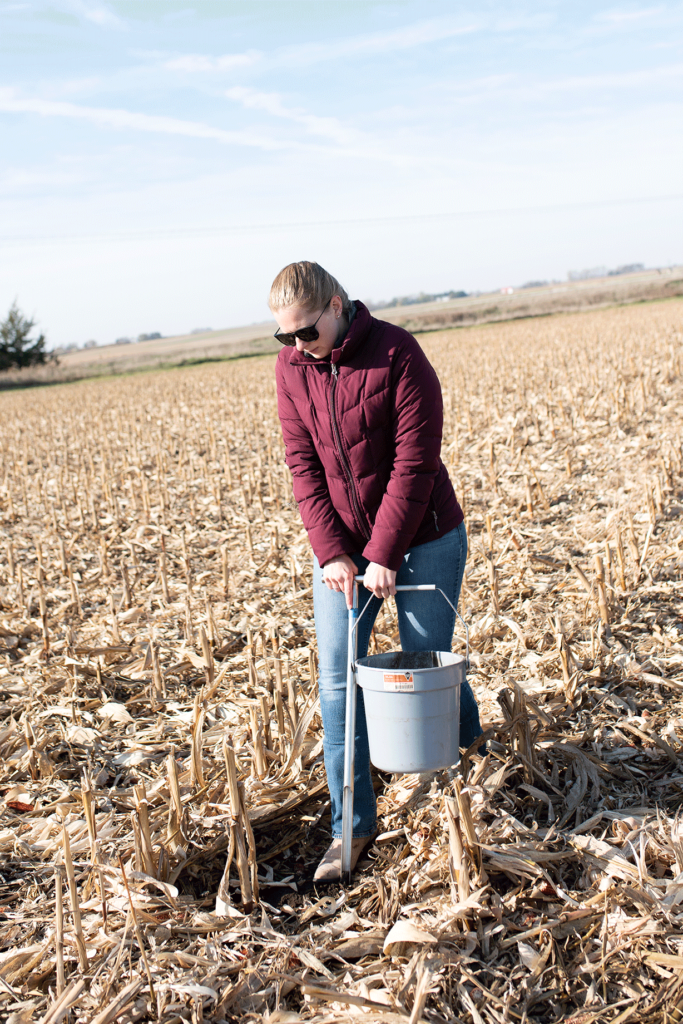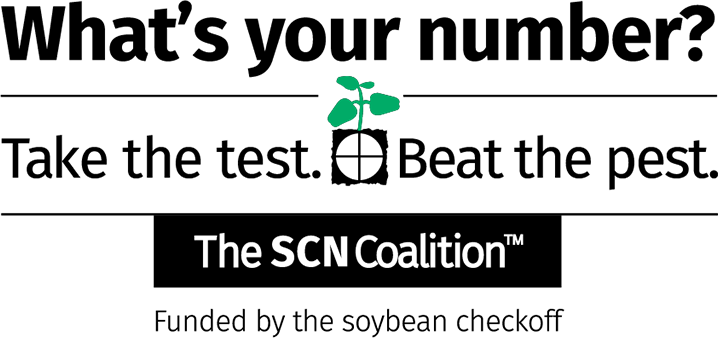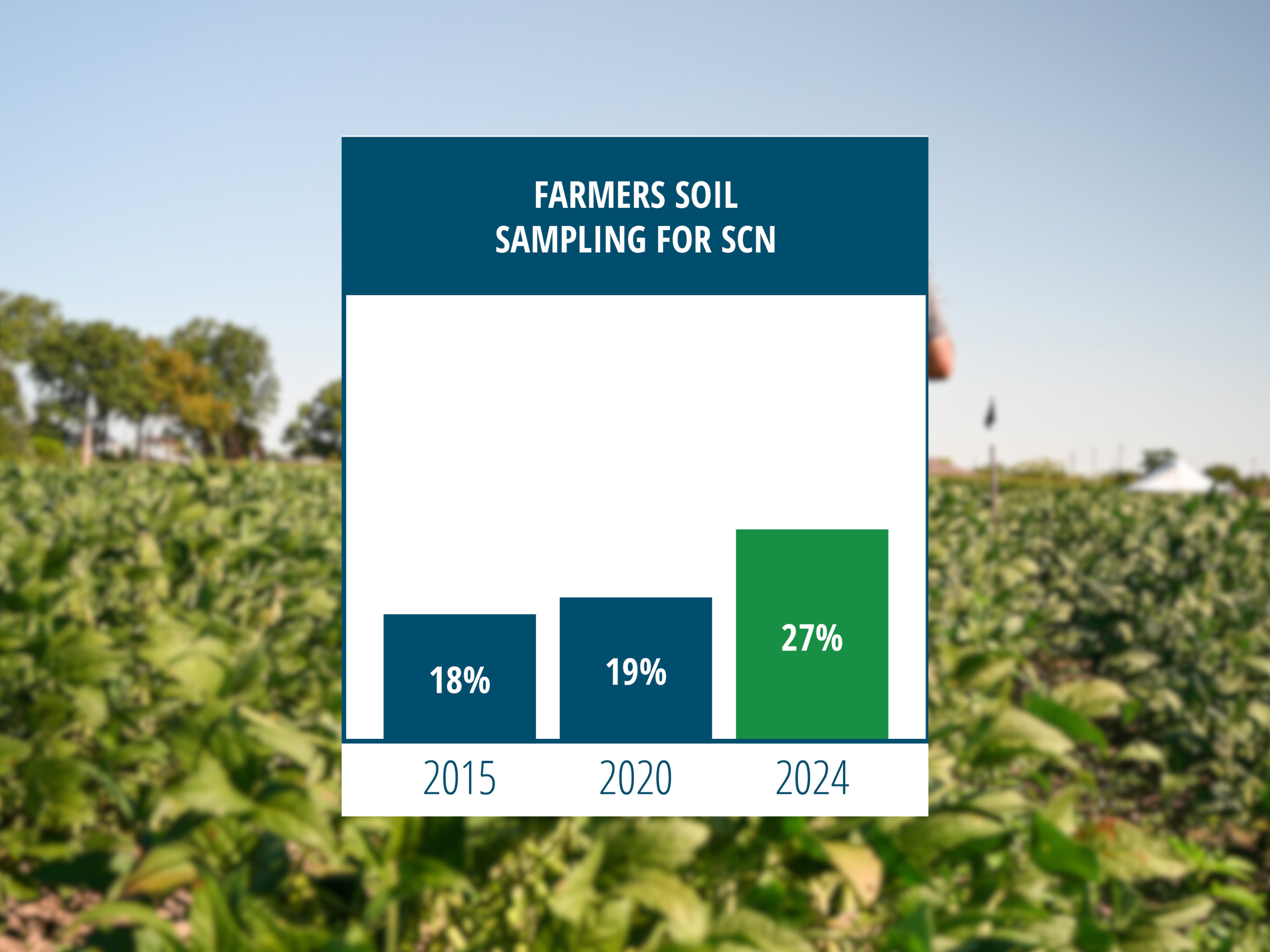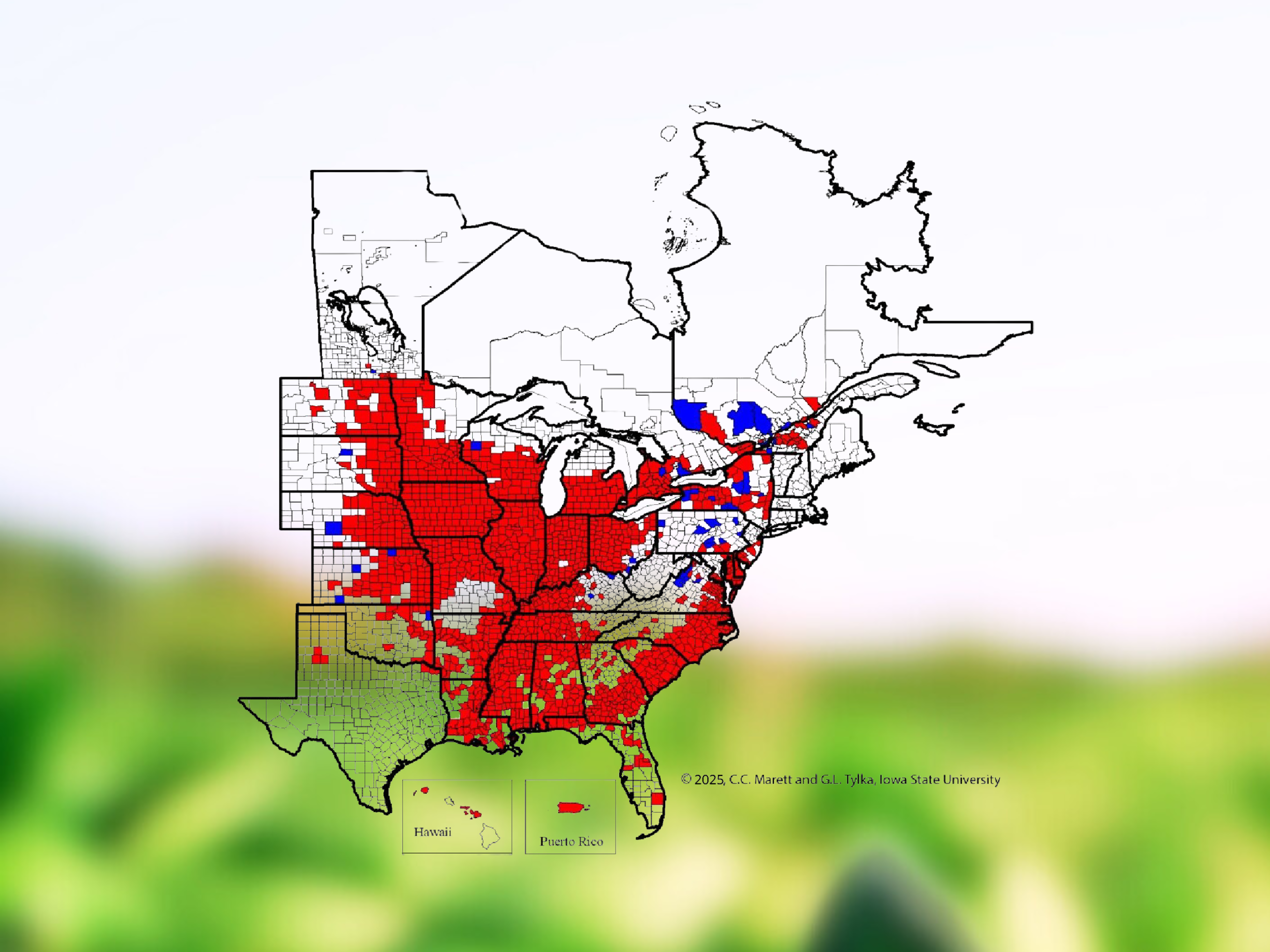Note: This is the second in a four-part series featuring the new video collection. Additional quotes to personalize your story are available here. The first press release is available here.

Waukesha, Wis. (October 20, 2020) – The SCN Coalition encourages soybean growers to know which fields have soybean cyst nematode (SCN) and at what population densities. Fall harvest is the ideal time to test soil for SCN.
SCN soil testing recommendations can vary by state, and some state soybean checkoff organizations have free soil sampling programs. Coalition experts encourage growers to get state-specific advice at TheSCNCoalition.com. “Successful management of SCN starts by knowing your number,” says University of Missouri Plant Pathologist Kaitlyn Bissonnette. “In Missouri, I recommend growers get a SCN egg count every three years.”
In a new video series titled “Let’s Talk Todes,” Bissonnette and Iowa State University Nematologist Greg Tylka explain why soil testing in the fall is the foundational element for managing SCN.
“In the Midwest, surveys have shown SCN to be found in 50% to 80% of fields,” says Tylka. “If a grower doesn’t know he or she has it and isn’t actively managing it, potential yield can be lost. After the results of the soil test are known, growers can select SCN-resistant soybean varieties and determine if a seed treatment is needed, or they might alter the rotation and slot in a second year of corn to try and reduce SCN population densities even more.”
Tylka says once SCN is detected, it will always be there at some level, which is why he encourages soybean growers to find it before populations explode. “It’s always there and it’s always going to be reducing yield. It might be 3 or 4 bushels per acre or it might be 23 or 24 bushels per acre. But you won’t know until you test your soil,” he adds.
Measuring progress
Bissonnette says a SCN soil test can also demonstrate if a grower’s management is effective. “After you have a baseline, coming back and testing soybean fields after harvest will tell you if modifications need to be made.”
Click here for a list of laboratories that process SCN soil samples.
About The SCN Coalition
The SCN Coalition is a public/checkoff/private partnership formed to increase the number of farmers who are actively managing SCN. Our goal is to increase soybean farmers’ profit potential and realize higher yields. Partners in The SCN Coalition include university scientists from 28 states and Ontario, grower checkoff organizations including the North Central Soybean Research Program, United Soybean Board and several state soybean promotion boards, and corporate partners including BASF, Bayer, Growmark, Nufarm, Pioneer (Corteva), Syngenta, Valent and Winfield United.



